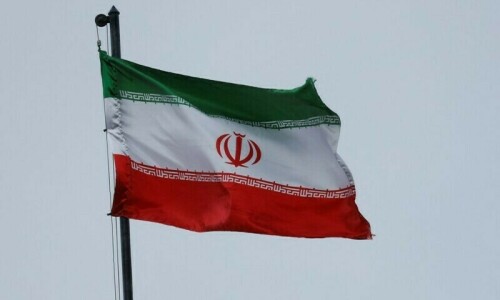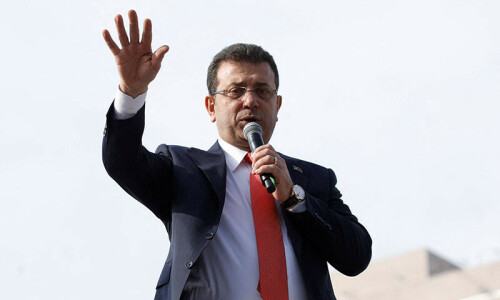KARACHI: Mahoor Shahzad had made history for Pakistan but was soon flooded with thoughts over why she’d gone through the rigours to achieve that.
Having become the first badminton player from the country to reach the Olympics, she was put through the wringer — first being accused of favouritism upon getting the tripartite invitation, then seeing her every move at last year’s Tokyo Games coming under intense scrutiny before being harshly, unduly criticised for failing to win either of her pool matches.
The joy of making it to the Olympics quickly dissipated. Mahoor was contemplating whether the journey was worth it.
“It was tough for me … really tough,” Mahoor told Dawn during a telephone interview on Thursday night ahead of her participation at the Commonwealth Games, which begin later this month in Birmingham. “I was left questioning myself. You end up losing your motivation.”
Rather than succumb to the noises, Mahoor became resilient. That trait has helped her in a country where athletes are used to expecting the unexpected.
Just this month, having completed a 12-day training camp for the Commonwealth Games, Mahoor received news that the Pakistan Sports Board had slashed the originally proposed contingent with the country’s sports regulators body saying it will only bear the expenses of those athletes which had medal-winning chances.
It meant the four-member badminton team was on its way out only for the Pakistan Olympic Association to intervene and pick up the cost of those athletes who were cut.
“First there were trials in Lahore to select the team and then the camp and just like that we were slashed from the plans,” Mahoor said. “For a week we were faced with uncertainty before thankfully the POA decided it will support us. It was a big relief for us.”
The POA reasoned that athletes benefit from international events and Mahoor fully agrees with that notion.
“It’s a learning curve for us,” Mahoor said, referring to her singles match against then-Indian number one Saina Nehwal at the last edition of the Commonwealth Games in Australia during Pakistan’s clash with their arch-rivals in the mixed team event.
“India blanked us [5-0] in that encounter but the opportunity to play against the very top players gives you more exposure and you learn a lot of new things and try to improve.”
At last year’s Tokyo Olympics, Mahoor was up against current world number one Akane Yamaguchi of Japan and Great Britain’s Kristy Gilmour.
“I don’t think I’d have a chance to face Yamaguchi if I wasn’t at the Olympics,” the 25-year-old said. “It’s that big-game experience that helps you and motivates you to do better.”
Getting better, however, is tough for athletes in Pakistan. “We train by ourselves, we have to find courts [to play] on our own,” she said.
Ranked 175th in the world, Mahoor however isn’t giving up.
“The aim is to break in the top 100 in the world … that’s what I’m focusing on,” she disclosed. “I just have to keep playing in international tournaments and try to qualify for the 2024 Paris Olympics.”
Ensuring regular participation in international ranking tournaments is the hard part. The Pakistan Badminton Federation, like other sports federations in Pakistan apart from cricket, isn’t cash-rich and struggles to find sponsors.
Thankfully for Mahoor, she’s one of 12 athletes from Pakistan who receive a monthly stipend of US$650 from the International Olympic Committee’s Olympic Solidarity programme for the Paris Games.
“It helps me fund my trips to the tournaments,” informed Mahoor. “I’m also on Badminton Asia Olympic Project which also helps.”
For the last several years, Mahoor has been the most dominant player in the country and has been winning tournaments despite nursing a hamstring injury she suffered at the end of last year.
However, mindful of the challenge she will face, she’s keeping her goals low for the Commonwealth Games.
“The draws for the Commonwealths are still to be announced but I’m aiming to at least get to the quarter-finals of the singles event,” Mahoor said, “and then we’ll see from there how far I can go.”
Published in Dawn, July 23rd, 2022














































